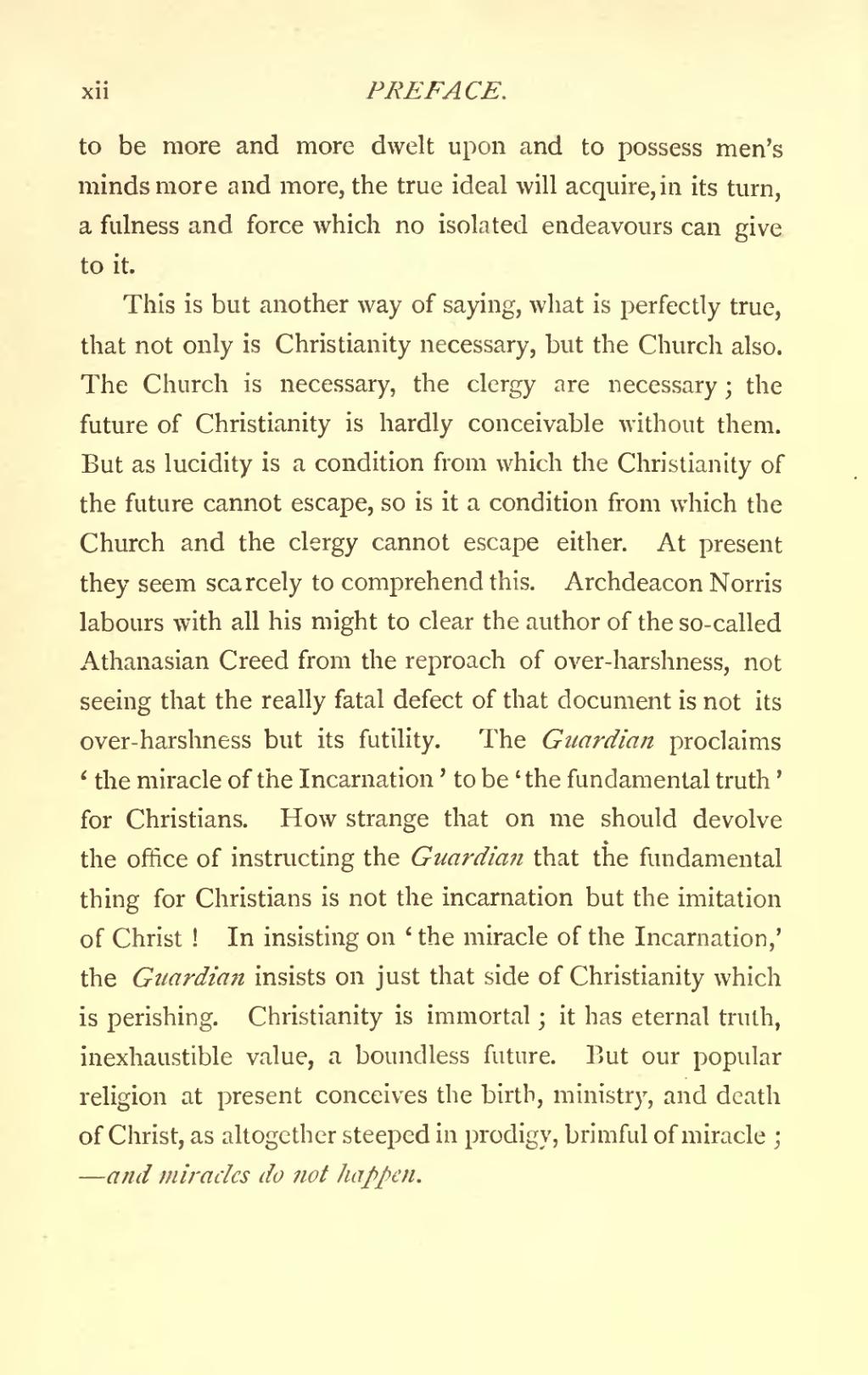to be more and more dwelt upon and to possess men's minds more and more, the true ideal will acquire, in its turn, a fulness and force which no isolated endeavours can give to it.
This is but another way of saying, what is perfectly true, that not only is Christianity necessary, but the Church also. The Church is necessary, the clergy are necessary; the future of Christianity is hardly conceivable without them. But as lucidity is a condition from which the Christianity of the future cannot escape, so is it a condition from which the Church and the clergy cannot escape either. At present they seem scarcely to comprehend this. Archdeacon Norris labours with all his might to clear the author of the so-called Athanasian Creed from the reproach of over-harshness, not seeing that the really fatal defect of that document is not its over-harshness but its futility. The Guardian proclaims 'the miracle of the Incarnation' to be 'the fundamental truth' for Christians. How strange that on me should devolve the office of instructing the Guardian that the fundamental thing for Christians is not the incarnation but the imitation of Christ! In insisting on 'the miracle of the Incarnation,' the Guardian insists on just that side of Christianity which is perishing. Christianity is immortal; it has eternal truth, inexhaustible value, a boundless future. But our popular religion at present conceives the birth, ministry, and death of Christ, as altogether steeped in prodigy, brimful of miracle;—and miracles do not happen.
